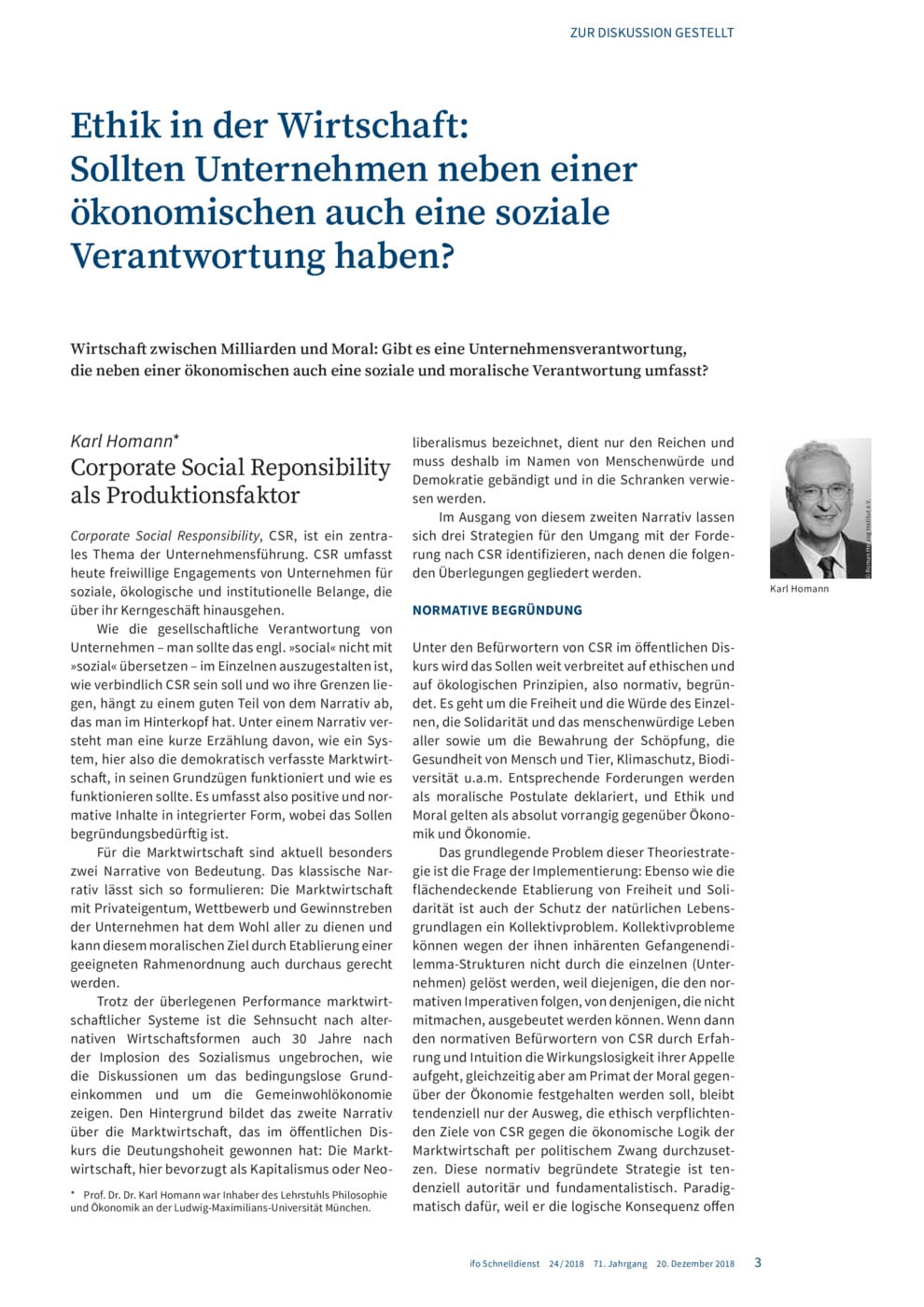Business Ethics: Should Companies Bear Both an Economic and a Social Responsibility?
ifo Institut, München, 2018
ifo Schnelldienst, 2018, 71, Nr. 24, 03-14

Business is trapped between making billions and morality. Should companies bear a social and moral responsibility in addition to their economic responsibility? Karl Homann, formerly of the Ludwig Maximilian University of Munich, comes to the conclusion that the market economy is superior not only economically, but also morally to all other known economic systems. The prosperity created by market economy systems is based on the logic of competition. Striving for profit and advantage in a market economy is therefore neither a motive nor a moral defect of its players. On the contrary, it is a system imperative that follows on from competition and to which all players are subject. If it is to be sustainable, corporate social responsibility (CSR) must be underpinned by advantages for the players involved. Christoph Lütge, Technical University of Munich, believes that the question of corporate social responsibility was answered long ago. In fact, many companies in the globalised economy have already recognised that they bear a social responsibility, which consists of doing rather more than merely complying with framework conditions; and that this social responsibility is not fundamentally at odds with its economic counterpart. No large company, and increasingly no medium-sized company, can afford to ignore issues like responsibility, ethics and sustainability. Companies have consistently recognised that it is in their own interest to assume a form of responsibility that goes beyond the legal framework. Ingo Pies, University of Halle-Wittenberg, also underlines the importance of competition; and thus of profit orientation. From society’s point of view, the profit generated by companies is not a genuine goal in itself, but rather a means of channelling corporate behaviour through incentives and using competition to serve the common good. It is precisely the profit orientation of companies that makes their behaviour calculable, thus making it possible to steer this behaviour in the desired regulatory policy direction by means of taxes and subsidies, rules and prohibitions. According to Irina Kummert, Ethikverband der deutschen Wirtschaft, more rules do not increase moral awareness. At the same time, demanding that companies assume a social responsibility on top of their economic responsibility means more regulation. In principle, entrepreneurial action is already expected to be in line with socially accepted values and norms; and to take into account the legitimate interests of those directly or indirectly involved. Economic and social responsibility are therefore two sides of the same coin.